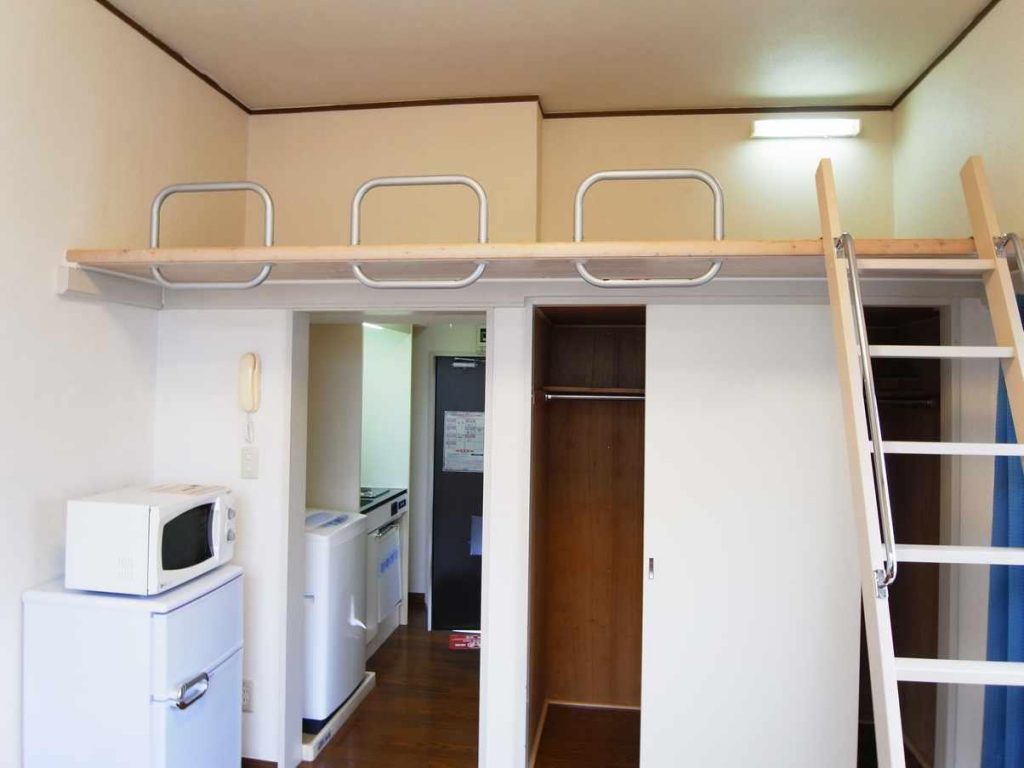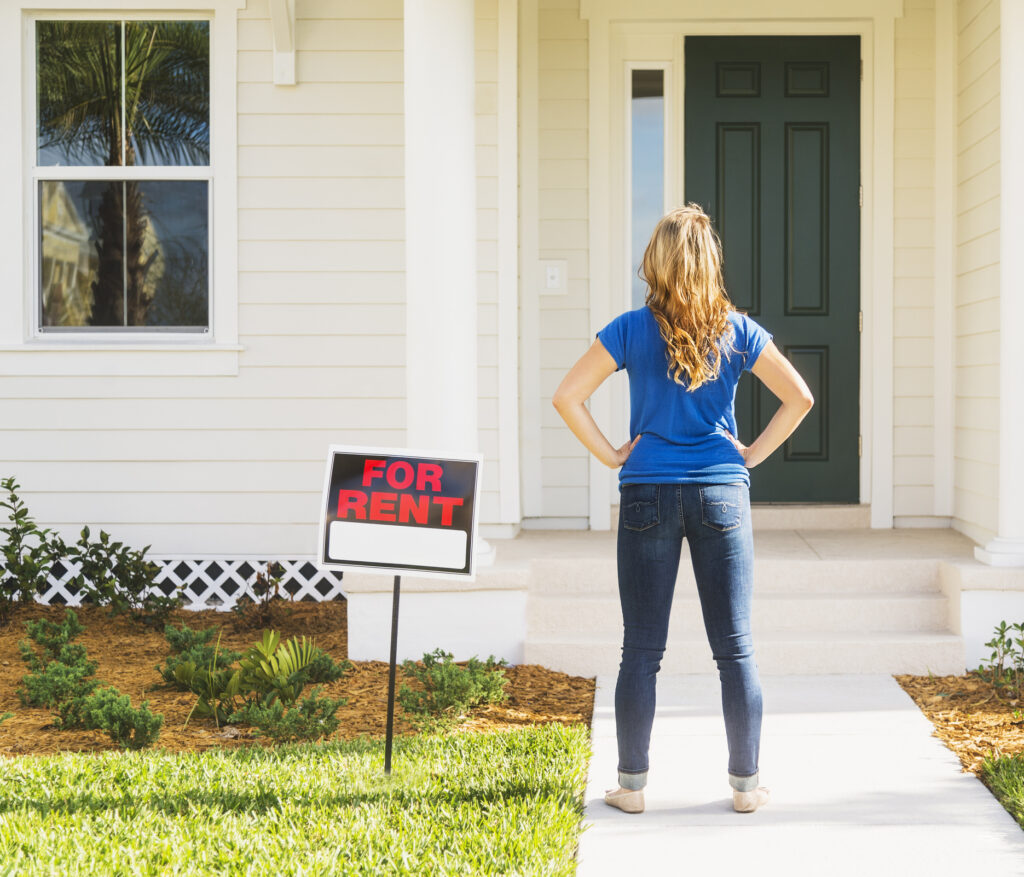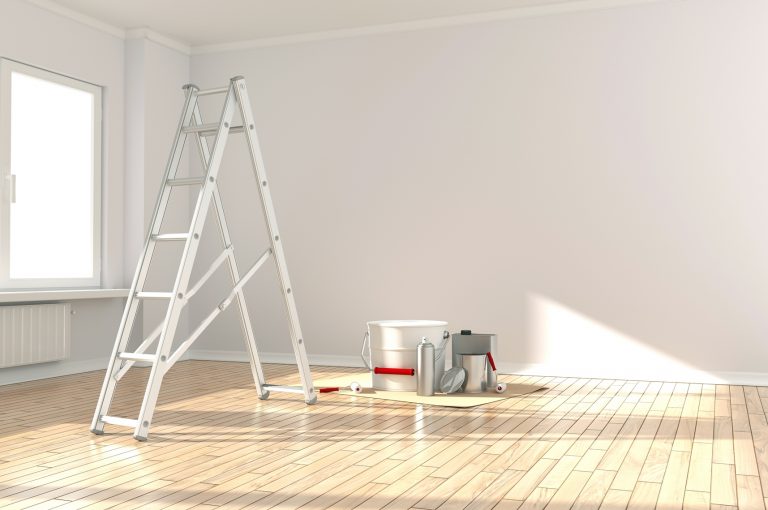Things to Keep in Mind for Your Next Storage Rental
October 27, 2023
If you’re planning a move, decluttering your home, or just in need of extra space to store your belongings, the storage rental can be a practical solution. In the United States, the demand for storage units has been on the rise due to various reasons, such as moving, downsizing, or simply reorganizing your living space. In this article, we’ll discuss the important factors to consider when renting a storage unit, whether you’re moving, looking for extra storage space, or need a temporary solution.
Renting a storage unit has become increasingly popular for Americans for a variety of purposes. Whether you’re moving to a new home, renovating, or just need to clear some space, storage units offer a convenient and flexible solution. Here are some key aspects to keep in mind for your next storage rental.
One of the first decisions you’ll need to make when considering a storage rental is the type of storage that best suits your needs. In the United States, you’ll typically find two common options:
When renting a storage unit, location is a crucial factor to consider. If you’re moving, it’s essential to choose a storage facility that’s conveniently located near your current or future residence. This will make the process of moving your belongings to and from the storage unit much more manageable. If you’re using a portable storage container, check if the company offers delivery and pickup services in your area.
Your peace of mind is paramount when storing your valuable possessions. Make sure the storage facility or portable storage container you choose provides adequate security measures. Look for features like surveillance cameras, gated access, and well-lit premises. Additionally, consider investing in a sturdy lock for your storage unit for an extra layer of security.
If you’re planning to store sensitive items such as electronics, artwork, or documents, climate-controlled storage units are a wise choice. These units maintain a stable temperature and humidity level, protecting your belongings from extreme temperature fluctuations, humidity, and other environmental factors.
Storage units come in various sizes, so it’s essential to choose one that suits your needs. Consider making an inventory of the items you plan to store to help determine the appropriate size. It’s often better to opt for a slightly larger unit to accommodate unexpected items or provide room for easy access to your belongings.
Easy access to your storage unit can save you time and effort, especially if you need to retrieve items frequently. Some storage facilities offer 24/7 access, while others have specific operating hours. Consider your own schedule and choose a storage facility that aligns with your accessibility needs.
The cost of renting a storage unit can vary depending on factors such as location, size, and the duration of the rental. Be sure to read and understand the rental agreement, including the terms and conditions. Many storage facilities offer discounts or promotions for long-term rentals, so it’s worth inquiring about these options.
Protecting your belongings is essential, and many storage facilities offer insurance options to safeguard your items in case of unforeseen events like theft, fire, or damage. While it may be an additional cost, it provides valuable peace of mind.
Renting a storage unit is an excellent opportunity to declutter and organize your belongings. Take the time to sort through your items and decide what you truly need to store. Use this opportunity to simplify your life by getting rid of items you no longer use or need.
If you’re new to renting a storage unit, be sure to check out this comprehensive guide to renting a storage unit for first-timers . It covers the basics and offers valuable tips for a successful storage rental experience.
Portable storage containers, commonly known as “Pods,” have gained popularity in recent years for various reasons. These containers offer unique advantages that cater to the convenience of renters.
There are several reasons why Americans are increasingly turning to storage units when they need to move. Here are a few key considerations:
When you’re in the midst of a move, the last thing you want is added stress. Renting a storage unit allows you to pack and move your belongings gradually, reducing the chaos and pressure of moving day.
If you’re trying to sell your home, a decluttered and spacious living space can be a significant selling point. Storing excess items in a storage unit can help you present your home in the best possible light.
If you’re downsizing to a smaller residence, you may not have enough space for all your belongings. Renting a storage unit gives you the flexibility to keep the items you love without overcrowding your new home.
In some cases, you might find yourself in temporary housing before moving into your permanent residence. During this transition, a storage unit provides a secure place for your belongings until you’re ready to move them to your new home.
Many Americans use storage units to store seasonal items like holiday decorations, winter sports gear, or summer outdoor furniture during the off-season. This keeps their homes clutter-free and organized.
Deciding whether you truly need a storage unit when moving can be a complex decision. It depends on various factors, including the size of your new home, the number of items you need to store, and your overall moving strategy. Here are some key considerations to help you decide:
Evaluate the storage space in your new home. If you’re moving from a larger residence to a smaller one, you might not have enough space for all your belongings. In such cases, a storage unit can be a practical solution.
Renting a storage unit allows you to organize your moving process effectively. You can sort your belongings, pack them in an orderly manner, and move them to the storage unit at your own pace. This systematic approach reduces the stress of moving day.
If you’re in temporary housing before moving into your permanent home, a storage unit provides a secure and accessible space for your items. It prevents the need to transport your belongings multiple times, ensuring they remain safe until you’re ready to move them to your new residence.
For interstate moving, portable storage containers are particularly beneficial. These containers can be transported long distances, making them a convenient option for those moving across states.
When renting a storage unit, it’s essential to consider several factors to ensure a smooth and stress-free experience. Here are some key considerations:
Before signing any rental agreement, carefully read the terms and conditions. Pay attention to the rental period, payment schedule, late fees, and any restrictions or rules imposed by the storage facility.
Properly preparing your items for storage is crucial to prevent damage. Clean and dry your belongings before storing them. Disassemble furniture, use protective covers, and consider using pallets or boards to elevate items off the floor.
Labeling your boxes makes it easier to locate specific items when you need them. Create an inventory list and label boxes with detailed descriptions of their contents. This organization will save you time and effort in the long run.
While storage facilities take security measures, unexpected events can still occur. Consider purchasing insurance for your stored items. Some facilities offer insurance options, or you can explore third-party insurance providers.
Even if you’re not accessing your storage unit frequently, it’s a good practice to check on it periodically. Ensure that there are no signs of pests, leaks, or damage. Regular checks allow you to address any issues promptly.
Renting a storage unit, whether for moving, decluttering, or temporary storage, offers practical solutions for Americans facing various life transitions. By considering factors such as location, security, type of storage, and organization, you can make an informed decision that meets your specific needs. Remember to read contracts thoroughly, prepare your items carefully, and stay organized throughout the process.
For more detailed information on portable storage containers and their benefits, a first-timer’s guide to renting a storage unit, reasons why Americans are increasingly turning to moving storage solutions, and essential considerations when renting a storage unit, visit WowMover. Their expertise and insights will guide you through a seamless storage rental experience.
At the point when you’re apartment hunting, your emphasis is commonly on finding an incredible new spot in a neighborhood you like. While you may not be watching out for apartment rental scams, keeping your eyes open for a potential fraudster is to your greatest advantage. In case you’re searching for your next rental home, these tips may assist you with spotting and maintaining a strategic distance from common rental scams.
One common apartment rental scams are for somebody to play off an empty property, frequently a getaway or vacation home, or one that is bank-bank-owned, as their rental property. At the point when it comes time for you to look the place over, they’re out of nowhere wiped out, sick, out of town, or won’t give you the location. Be extra mindful if they request a lease or a security deposit in spite of not appearing to meet you.
Also Read: The Easiest Way To Help You Find The Perfect Apartment
A decent landowner or property manager will show you the apartment, regardless of whether it implies rescheduling for one more day or having a partner take you through the property. You should never sign a rent without seeing a rental. On the off chance that you can’t go see it in person yourself, which may occur if it’s a significant distance move, have a companion or relative you trust in a stroll through the rental property.
In the event that you haven’t seen the place let alone signed a lease, there is no requirement for you to give the landlord cash. In case you’re approached to pay upfront, You should leave. Be particularly cautious if a landowner demands a wire transfer, as it’s extremely hard to stop an installment that is wired — which is the thing that the scammer is relying on.
In the event that you discover a place with rent that is well below different apartments in the location, This might be a sign of a fake posting. It’s normal for apartment rental scammers to copy and past from a real posting into a false one with a low rental cost. This rental scam is frequently coordinated toward individuals who are moving from out of town and other people who put money down without any inspection since it would seem that such a decent arrangement. There is an opportunity it’s the real deal, however, continue with caution.
When you apply for a rental home, you’ll likely be requested for monetary information and work confirmation and verification, and the proprietor may do an individual verification. Along these lines, if a proprietor or property manager doesn’t do a lot of screening or is excessively ready to arrange the rent with you, it might be cause for concern. Scammers will in general need to surge the procedure, with the goal that you’re pulled in before you understand something isn’t right. Along these lines, in case you’re feeling pressured by an excessively energetic landowner, you might need to leave.
Also Read: How to Make a Financial Plan for Your First Apartment
Avoid listings that are loaded with grammatical errors — a spelling error here isn’t caused for concern, yet landowners and property managers will probably edit a posting before it is distributed and published, so a posting with various blunders is a warning.
Try not to give out personal information upfront — there is no compelling reason to give money-related data or your Social Security number while you’re still looking for a rental.
Looking through the property’s location on the internet — this may show likely issues, for example, regardless of whether a property is in foreclosure or that the alleged landowner is truly not the proprietor.
Follow your instincts and leave a circumstance that doesn’t appear to be correct or when you’re getting forced. Knowing a few indications of potential rental scams can assist you with abstaining from being exploited as you pick your new home.
Related Articles:





Home staging is a valuable marketing tool for home sellers. By emphasizing the property’s finer aspects and reducing faults, a staged home builds an emotional connection with potential buyers. Purchasers may envision themselves living in the home, resulting in a larger pool of possible buyers and a shorter time on the market.
Staging your property, on the other hand, is a financial investment. Certainly, the return on investment (ROI) must be worthwhile. Our guide to home staging costs includes important facts to consider as you work to make your home show-worthy.
Related
Household Problems To Fix Before Moving Into A New House
House Hunting Tips for Moving Out of State
Things You Should Know About Your House Down Payment
Do you want to know how much it costs to stage a home? Consider how quickly comparable houses in your region sold, their condition, and how long they were on the market when deciding on home staging.
According to the National Association of Realtors (NAR), the average cost is $400. The cost of home staging varies greatly depending on the local market and the services used. The national average spends for consultation, organization, and redesign of three rooms was $1,500, according to a Fixr survey.
Planning to move?
Here are the best moving companies you can trust;
Xfinity Moving
College Hunk
Two Men and a Truck
All My Sons Moving and Storage
U-Haul
College Hunk
Portable On Demands
Budget Truck Rental
1-800-PACK-RAT
Penske
Best Interstate Moving + Storage
The cost of house staging is determined by a number of factors. Keep the following factors in mind as you plan your home staging budget.
Consultation
The goal of a home stager is to objectively assess your house’s current overall condition and advise you on the best upgrades to make in order to maximize resale value. A comprehensive property appraisal and a detailed description of suggested repairs, design, and furniture improvements, and paint colors are frequently included in the initial consultation.
Your house’s condition
The status of your home, first and foremost, will determine your personal home staging charges. Is your home, for example, tidy or cluttered? Is the house empty or occupied by the owner? Are your home’s repairs current? Your customized home staging path will be put in motion by the modifications you choose to make based on your stager’s recommendations.
Is it better to restyle your furniture or rent it?
The cost of house staging is determined by the style of your home. If you choose a restyle, your home will be staged using the furnishings and accessories you already have. Part sellers, on the other hand, choose to remove some or all of their current belongings to create a way for rented furniture.
Organizing and decluttering
During your home staging consultation, you’ll get advice on how to get your house ready to sell. Cleaning and organizing rooms may be a part of that preparation. You can do it yourself or hire a staging firm to do it for you.
Style, delivery, and installation
To achieve a consistent look, styling is an important aspect of the staging process. Consult your home stager on the cost of key room decorating versus a full home makeover. The cost of renting and installing furniture and decor in your home will affect your home staging budget. The bottom line is that the more resources you need to stage your property, the more money you’ll spend.
Photography by a professional
A well-staged property must be able to transition to virtual listings. Professional photography comes into play. After the change is complete, some home staging businesses offer photographic packages that include a professional photo shoot. These images can be utilized in virtual listings and other forms of marketing.
Lease agreement
When you rent furniture, artwork, or accessories to stage your house, you’ll usually be required to sign a contract that specifies a minimum rental duration. This could be on a monthly basis or more, and it will need to be factored into your research into “how much to stage a house.”
Related Articles:






When someone says they’re saving for a house, what they actually mean is that they’re saving for a mortgage down payment. It’s unusual for anyone to show up with the full value of a property in cash, though it may be more common in today’s frantic real-estate market.
A down payment is a significant sum of money that you will put into the purchase of your new home, in which you will make monthly payments on a mortgage loan to pay off the remainder. Before you buy the property outright, it may take twenty or thirty years, or even longer.
For many people, the down payment is the most significant impediment to homeownership. Monthly mortgage payments may be the same as — or even less than — what someone would pay in house rent in the same neighborhood. However, in order to get to that point, a potential homebuyer must first have the required down payment, which may be as much as $30,000 or more in the bank.
Don’t give up! Here’s what you need to hear before making a down payment.
If you can’t afford a 20% down payment, your lender would almost certainly require you to pay Private Mortgage Insurance (PMI). This is because your bank or lender views a loan with less than a 20% down payment as a riskier loan that requires protection in the event you default on your payments.

PMIs range between 0.5 percent and 1% of the mortgage amount (annually) and these fees are included in the monthly mortgage payments. When you have 80 percent equity in your house, you can stop paying PMI.
There are definite benefits to putting down a 20% down payment, but it is by no means needed. The average down payment on a home has been between 5% and 7% in the last five years.
Keep in mind, though, that the type of loan you choose will affect how much you put down (and the length of the loan). A traditional loan, for example, requires a minimum of 3% down payment and is either 15 or 30 years long. A 3.5 percent down payment is needed for an FHA (Federal Housing Administration) loan.
A lower down payment allows you to purchase a house faster and save money for other expenses such as renovations and home improvements.
However, a lower down payment increases the monthly mortgage payments, and you’ll almost certainly need to include private mortgage insurance.
It’s simple: if you borrow less, you’ll have less debt to repay and can pay less in net interest. When the loan-to-value (LTV) ratio is lower, mortgage lenders and banks normally give better interest rates. Before approving you for a home loan, banks use your loan-to-value ratio (expressed as a percentage) to determine how risky you are.
A higher down payment also raises your home equity, which is the value of your home that you haven’t lent against and will use to refinance at a lower interest rate.
Also Read: What Is the Legal Description of Property?
Sure, you’ve been diligently saving for your down payment, but keep in mind that a bank will not grant you a mortgage until you have a certain amount of money in your bank account.
Banks and lenders would want you to be able to make your monthly payments for at least the first two to three months, often known as a cash reserve requirement. You’ll need to show that you have liquid assets in your checking or savings accounts, your bank can also accept money kept in the form of stocks, shares, 401(k)s, and other financial instruments. If your monthly mortgage payment is $2000, your lender would expect you to have at least $4000 on hand.
Bear in mind that you’ll have to make more than just your monthly mortgage payments. There are also closing expenses, such as title insurance, renters insurance, and a home inspection. Your closing costs will vary between 2% and 5% of your purchase price. So, if you purchase a house for $500,000, the closing costs could be between $10,000 and $20,000.
FYI: If you’ve been saving for a down payment but are having trouble making it happen, a down payment assistance program such as an FHA or VA loan might be able to help. These services provide support from government agencies, nonprofits, and labor unions that can be used as loans before you move in, or even as grants that you don’t have to pay back. Homeownership may seem to be out of reach financially, but it may be closer than you think.
Related Articles:






How can I get a cheap rental on my next lease? Renting a house or apartment can be costly. The good news is that in some cases, you may be able to negotiate a lower rent.
There are times when it’s appropriate to ask for a lower rent, from shifting rental costs to market trends and even pandemics that affect a large number of people.
Whether you’re thinking of asking your current or potential landlord for a lower rent, you should be prepared with research and a strategy to maximize your chances of success.
It’s worth noting that if you make an offer to a real estate agent to negotiate a lower rent, the agency is obligated to present it to the landlord for review and a decision.
If you’re thinking of asking for a lower rent, like anything else in life, it’s best to be prepared, do your homework, and go in with a strategy.
Here are some things to think about before asking for a lower rent.
If you’re going to ask for a lower rent, make sure you’ve prepared yourself with evidence to back up your claim. This could include demonstrating that similar properties in the area are available at lower costs, demonstrating that prices have been declining in the area, or researching the percentage of unoccupied properties in your area.
If the home has been on the rental market for a long time, you may want to keep track of it and present evidence of it – this may give you some negotiation power.
Ask yourself how far you’re willing to go before you start negotiating. Are you willing to break your lease early and go elsewhere if your landlord does not fulfill your price expectations? If that’s the case, go over your lease agreement first.
You don’t want to jeopardize your bond by breaking a lease, which might cost thousands of dollars. Before jumping ship, it’s crucial to know how much money is on the line (or threatening to).
It is possible to end your lease early if you and your landlord reach an agreement first. If this is the case, make sure to have any liability or cost agreements in writing.

After you’ve done your research and double-checked your rental agreement (if you’re approaching a current rather than a possible landlord), you’ll need to figure out how you’ll approach them and what you’ll ask for.
If a face-to-face meeting isn’t possible, you might write a letter or arrange a video call. Either choice is acceptable.
Then make sure you walk in with a certain discount in mind, research to back up that discount, and a list of what you’re willing to negotiate on. For example, if you agree to sign a longer lease, your landlord may agree to the discount. Prepare for this and decide where you are willing to make concessions before approaching the request.
how to write a letter requesting a rent decrease
The next stage in negotiating a lower rent is to send an email, as formal requests for changes to the lease agreement must be made in writing.
Your property management or landlord may prefer to talk over the phone about the matter, but it’s ideal to have the request in writing in case you need it later.
Here’s how to write a letter to your landlord requesting a lower rent:
If COVID has had a financial impact on you,
If COVID has had an impact on your money, this should be the primary subject of the letter.
You’ll need to write down the following details:
100% Free Instant Moving Quotes! America’s Most Reliable and Affordable Long-Distance or Local Movers at WOW MOVER
Related Articles:






It can be a great investment to own a rental home, but do you know how to plan a place for tenants properly? To get your home ready for tenants, check out these tips.
This is another job that you can perform or leave to a specialist as long as it is professionally and thoroughly completed. To make sure it works properly and is ready to move in, check your home and everything in it. Check all the ceilings, windows, roofing, floors, doors, walls, systems (plumbing, HVAC, electrical, etc, and other structural components to make sure the construction of your home is in good condition. For mold, cracks, and water damage, keep an eye out. If the rental is furnished, make sure that in addition to ensuring that all the appliances are functioning properly, there are no furniture problems. Be sure to get them resolved as soon as possible if you find any issues.
Also Read: Things to Consider Before Moving into a Rental Property
You can find that there are still changes to be made, even though everything works perfectly. On all your walls, lay a fresh coat of paint, do some outside landscaping, upgrade lighting fixtures, and make other improvements to refresh the space. You may also start updating countertops, appliances, and cabinetry. While upgrades and repairs can become costly, as a result, they can also boost the amount of renting you can charge.

Before renting, it’s important that you clean your home, preferably when searching for tenants, but definitely before anyone moves in. This should go beyond the normal cleaning routine to get to items like cleaning carpets, adjusting air filters, and scrubbing baseboards that are readily overlooked or put off. All that matters is that the work is done properly and from top to bottom. You can do it yourself or employ a cleaning company.

You may be needed to contact your mortgage company before renting out your house, depending on your lender and mortgage type. Your loan contract should list these requirements; if you have any concerns, contact a loan officer. If stated in your contract, you will need to follow up with details about the tenant or provide evidence of additional insurance. Contact your lender when in doubt.
A prospective renter needs to know that they live in a clean and safe house. Make sure that the locks are changed, make sure that all smoke alarms are in working order, and fit a full fire extinguisher in the kitchen. Try installing a home security device if you don’t already have one. A simple way to give your tenants more peace of mind as they step outside at night is to add motion sensor lights outside.
Related Articles :






Before You start house hunting. This is the part where you’ll need some cash upfront, so be sure to budget for it. Purchasing a home is never just about the price tag!
Consider your current monthly spending. Food, insurance, gas, rent, utilities, and caring for any dependents or pets account for a significant portion of most people’s income. Budgeting will become your best friend until you have a monthly mortgage payment to make.
Your weekly movie outings, occasional Starbucks, and weekend shopping sprees can become less important to you than paying your mortgage bill on time, so make sure you outline and discuss all of your current expenses appropriately.
You may wonder how you’ll deal with and adapt to these changes. Decide what are the most critical aspects of your lifestyle and what can be sacrificed. There are a few options available to assist you in keeping track of your finances.
To ensure that you can afford your mortgage payments, you must decide on a price range for your new home that makes sense for you based on your monthly spending.
Isn’t it true that your key life goal is to become a homeowner? Why are you here in the first place? Other goals, on the other hand, should be kept in mind if they are important to your future.
These are just things to keep in mind so you don’t spend too much money on your home and neglect to save for other important goals. Fortunately, the internet’s vastness offers a plethora of websites to choose from if you’re looking for a way to keep track of your objectives.
Before you start fantasizing about your wrap-around porch, and stainless steel appliances, make sure you have a credit score that banks will be proud of.
In general, a higher credit score means a lower interest rate, which means more money in your wallet.

Before you start looking for a home, talk to a few banks to get pre-qualified for a mortgage based on your credit score. You’ll be able to get an idea of how much you can easily afford this way before jumping in.
Related: How Your Credit Score Impact Mortgage Rates
Fortunately, there are many online tools for determining your credit score. For a free credit report and a $1 credit score, go to freecreditreport.com.
Before you start falling in love with that ranch in your dream neighborhood, you should really look into what types of mortgages are available to you depending on your financial situation.
The bank will assist you in determining what types of mortgages and interest rates you can handle, allowing your agent to quickly narrow down homes in your price range.
You should look into a Federal Housing Administration (FHA) loan if you don’t have enough money to put down 20%.
If you don’t pay your mortgage, the FHA guarantees to reimburse the lender. Lenders would encourage you to take out a big loan with an FHA loan because they know the government will pay it back.
If you have enough funds for a 20% down payment but don’t want to deal with the budget constraints or mortgage insurance premiums associated with an FHA loan… You’re better off getting a traditional loan.
Related Articles:





